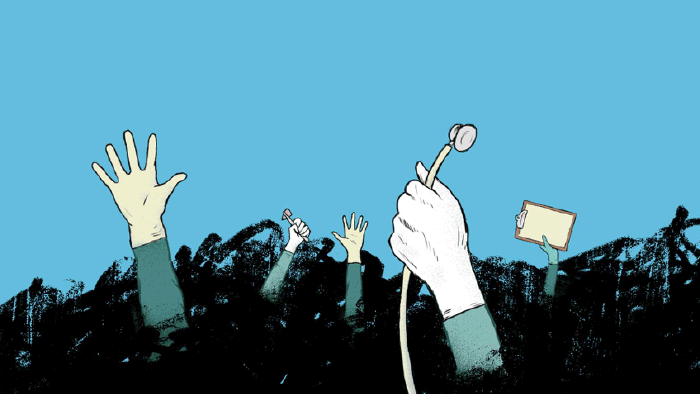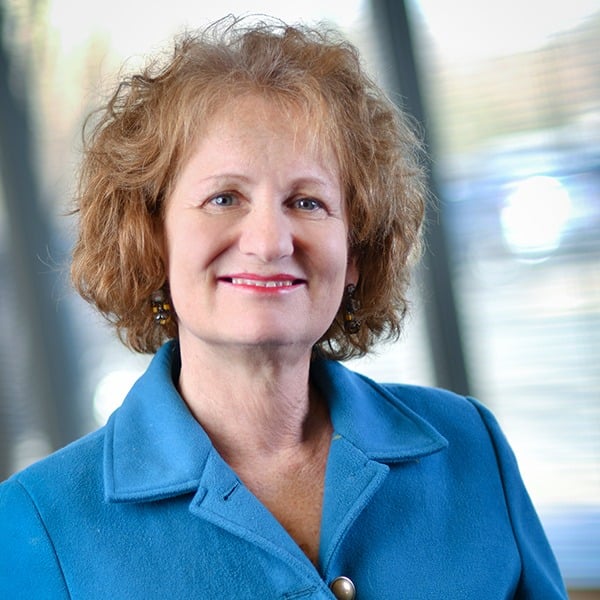
In the first episode of the story, Dr. Cliff D. was overheard directing loud, hard words to two colleagues during surgery. Someone—we’re not sure who—complained to HR director Joelle K., and she interviewed the participants. What emerged was that Dr. D. had ordered nurse Janice L. to remove a retractor, and Janice was concerned the doctor hadn’t sutured an incision within the region that the retractor was holding open. When Janice asked the doctor for an explanation, he blew up; and he also blew up at attending physician Gita K. when she supported Janice.
Part II — Fallout On The Clinical Team
When Janice had finished telling Joelle the main facts of what happened, she took a breath and continued, speaking slowly at first.
“The thing is, Joelle, I want to be responsible, and I want to learn,” she said. “When I asked the doctor about the suture, I think I was operating on both levels. Right? I wanted to be sure he wasn’t overlooking something, sure. But I know he’s one of the best surgeons in the city. He’s created surgical techniques that they use all over the country, hasn’t he? So, I really wanted to know why he didn’t want to keep that area retracted. I tried to ask him respectfully because I know he has a temper. I mean, there have been incidents, right? I don’t know the details, but I’ve heard that he’s gone off on nurses before.”
Janice started speaking more quickly.
“Still, I want to be fair to him. People say he has pressures at home. I guess he thought I was questioning his judgment, but I wasn’t. I wanted to know. It makes me feel like just…keeping quiet, you know?”
In the next interview, Joelle asked Dr. Gita K., the attending, to describe how Dr. D’s outburst had “landed” with her.
“I respect Cliff so much,” she said, “and you can learn from him when he’s in a good mood. But in general, it’s hard to collaborate with him, if you know what I mean. You never really know when he’s going to blow up. Like the time with TK. Nobody addressed that.”
“Well,” said Joelle, “at the time it just seemed like…an isolated incident. In the context of this great career.”
“But it wasn’t, was it?”
Joelle looked at her hands for a moment before she spoke.
“No. No, it wasn’t,” she said. “We should have been more aware. I guess we were trying to give Cliff the benefit of the doubt, because, you know, his life’s been in some turmoil for quite a while. I guess the marriage isn’t great…and there’s the substance abuse issue with Cliff junior.”
“I get that,” said Dr. K. “But we’re talking about team cohesion and cooperation here. You’re walking on eggshells with Cliff. And it’s more than that. I mean, he blew up right in the middle of a procedure, and it broke everybody’s concentration. Especially his own concentration, right? I mean, something could have happened.”
“So it had an impact on the team’s effectiveness?” Joelle asked.
Dr. K. nodded slowly.
“It did, and not just in that moment and not just with that procedure. I’ve been on surgical teams where the lead really listens to everybody, and so you get this robust set of opinions and inputs before the lead makes the decision. It feels good—it feels like the best solutions for the patient come that way.”
She took a sip of water before continuing.
“But right now, to be honest, I feel like everybody who works with Cliff is going to be pretty quiet around him. So instead of the combined skill and experience of a group of people, the patient is getting—Cliff and only Cliff.”
And she took another sip.
“Not that he’s not amazingly competent. But we all have contributions to make, and we need to feel we can make them. That’s what I think, anyway.”
Later that day, Joelle met with Dr. Mohammed R., the medical director and filled him in about the incident and the interviews.
“Mo, I’ve got multiple concerns about Cliff’s outburst the other day,” she said.
“I know he’s not the most good-natured guy in the world,” said Dr. R. “And he’s old-school, top-down medicine too. He can be kind of authoritarian.”
“I think it’s more than that,” Joelle said. “When he loses his temper and blows up, it lands on his colleagues as disrespect—not teaching or useful criticism or grumpiness or some old-fashioned leadership protocol. They feel shut out. In fact, they feel that decision-making gets compromised because they’re more and more unwilling to say anything to him that he might interpret as criticism and blow up over.”
Dr. R. looked thoughtful.
“And from where I sit, I have a concern about morale and the whole retention issue, which, as you know, is my daily worry. I don’t want to lose a skilled surgical nurse like Janice or a good doc like Gita. I know you don’t.”
“I certainly don’t,” said Dr. R. “and I don’t want care compromised by a team that’s afraid to contribute what they see and what they know. But I also want to be fair to Cliff.”
“So do I,” said Joelle. “But Mo, this isn’t the first blowup, and the blowups aren’t the only problem. There’s a pattern here, and we need to take a look at it.”
Dr. R. nodded and sighed.
The story continues in the next installment, part 3, when a review of Dr. Cliff D.’s behavior reveals some warning signs of trouble to come.
Dealing with similar circumstances within your healthcare organization? Contact us today and learn more about the proper way to address disruptive physician behavior.



